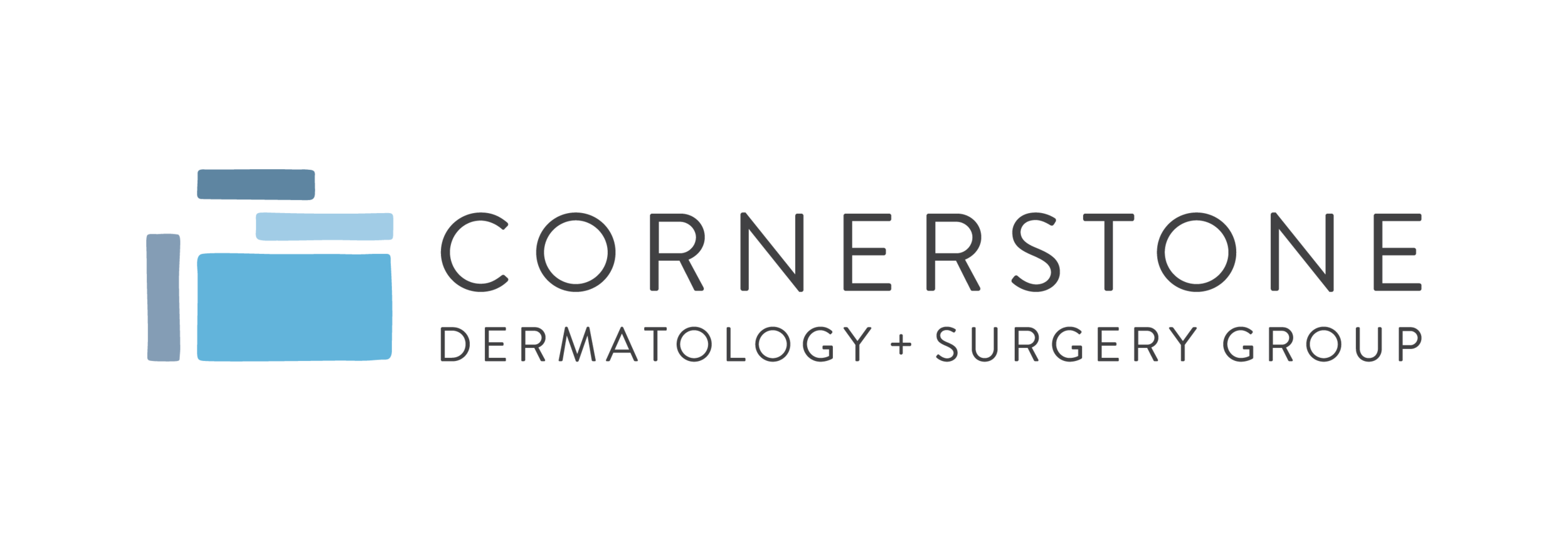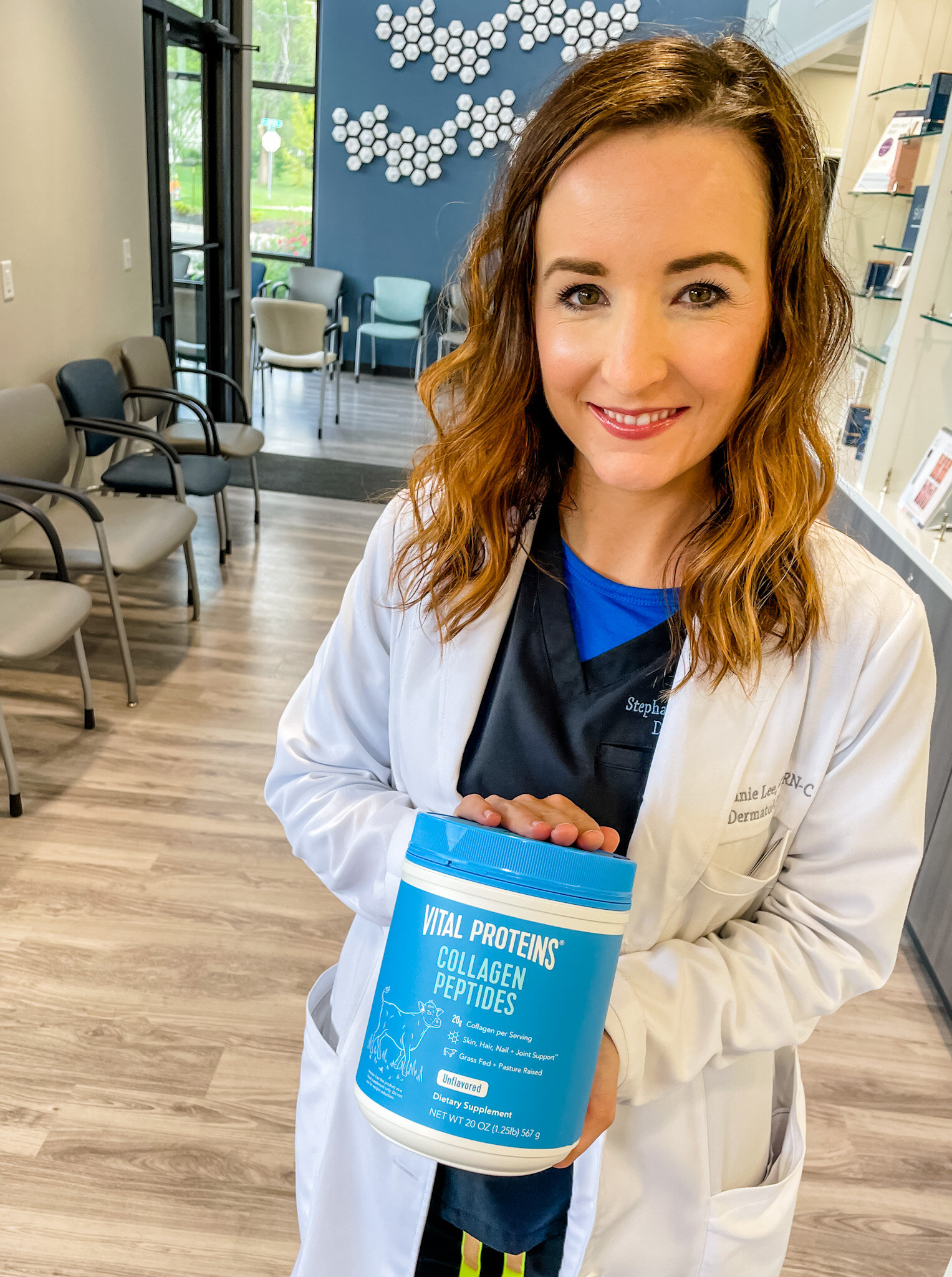Collagen Supplements for More Youthful Skin: Questioning the Claims
If you’ve been adding collagen powder to your morning coffee, you know it can help you feel more satiated throughout the day. But does ingesting a collagen supplement have added benefits for your skin health too?
Collagen is a hard-working protein our bodies need to survive and thrive, and it makes up the bulk of our skin. As we age, starting in our 20's our bodies begin producing less collagen. The result? Sagging skin and fine lines.
Can collagen supplements improve my skin health?
Cornerstone Dermatology Nurse Practitioner Stephanie Lee says she has a number of patients who swear by their daily collagen, but that as of right now, large-scale studies don’t back up the marketing claims on that blue canister of Vital Proteins.
“The packaging makes claims about youthful appearance as well as improved skin hydration and skin elasticity,” Lee notes. “These are of course things that we all want! However, we need to be good consumers and realize that the research backing up these advertising claims is not independently conducted – it’s paid for by a company to sell their product.”
Lee reviewed the most current independent studies regarding collagen and skin health, and came away with a few key takeaways to share with her dermatology patients.
“In some smaller studies, collagen supplementation showed a statistically significant relationship with improved skin hydration,” Lee says. “Increased hydration can have a plumping effect on our skin, which may reduce the appearance of fine lines and wrinkles.”
But it’s also important, as we understand how collagen can help, that it’s a protein like any other we may consume that functions – namelessly – within our bodies, Lee notes.
How does collagen work?
Collagen is a protein made of molecules known as amino acids. Small clusters of amino acids are called peptides. Peptides are responsible for regulating a variety of cell functions, including metabolism, digestion, respiration and immune response. Peptides aid in cell communication to perform these functions. Your body knits together amino acids into peptides and then all of the different proteins it needs to survive and thrive!
When you consume protein – no matter the source – it has to be broken down into its smaller parts (amino acids) in order to be put to work throughout your body. By the time a protein has been broken down to circulate throughout your body, 90 percent of it has been broken down into peptides – no version of the original collagen ‘product’ is making its way through your bloodstream.
So, whether you’re ingesting a collagen supplement or a whey protein or eating a chicken breast or a steak, any kind of collagen is beneficial for the skin.
“Our bodies don’t recognize the source of the beneficial amino acids and peptides,” Lee says. “By the time the body processes collagen into a usable form, it won’t be able to tell the difference between me taking a collagen supplement or me eating a piece of fish.”
What happens when a dermatology nurse practitioner tries collagen?
Despite the lack of large, independent studies, Lee says she likes to be open to new research and learn as she goes.
Beginning August 19, Lee is supplementing with a single (20 g.) serving of Vital Proteins collagen each morning. She will continue this regimen for 12 weeks, given that the length of most studies was 10-12 weeks.
“While I won’t claim for my sample size of ‘1’ to be statistically significant, I’m looking forward to personally seeing what all the buzz is about and being able to relate to my patients on this topic,” Lee says.
At the end of her 12 weeks, Lee will check back here with her personal anecdotal findings.
Stay tuned!
Related Reading
https://www.ncbi.nlm.nih.gov/pubmed/1220811
https://www.ncbi.nlm.nih.gov/pubmed/24401291
https://www.ncbi.nlm.nih.gov/pubmed/26362110


